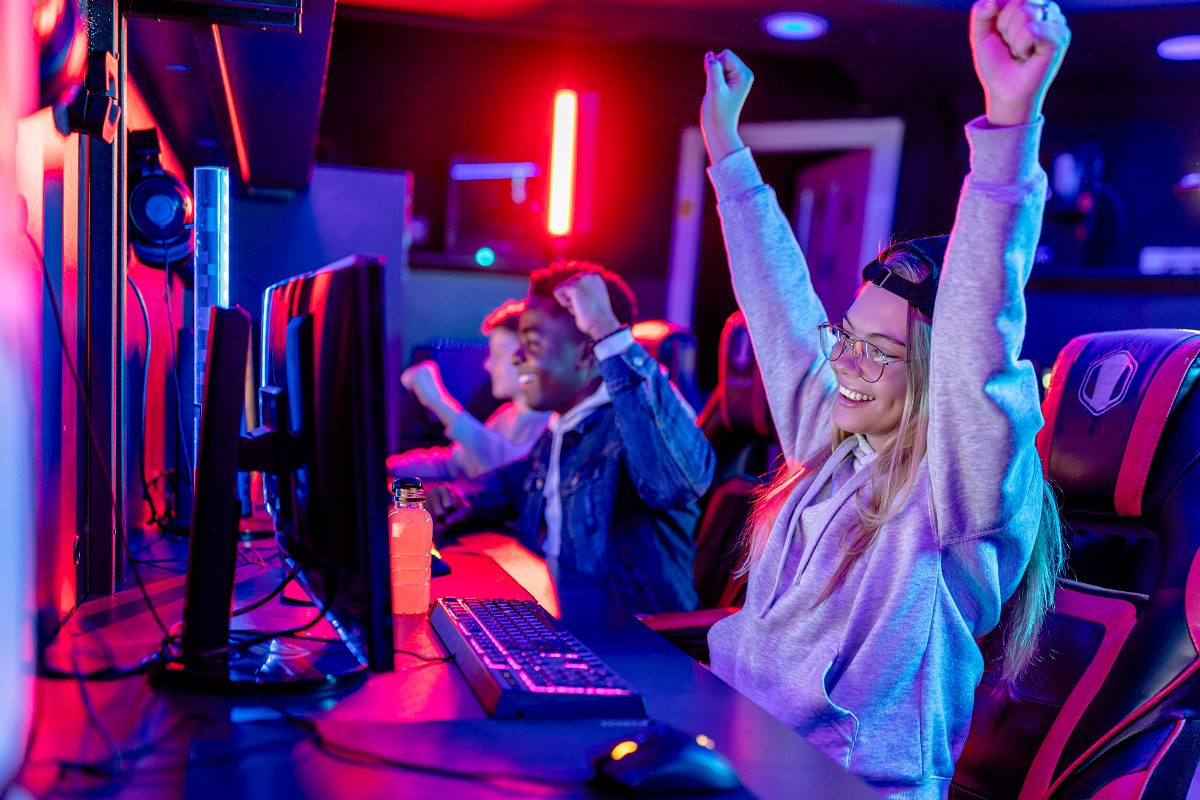Teamwork, communication and problem-solving are just some of the skills students can acquire when electronic sports, most commonly referred to as esports, are incorporated into curriculum, according to ASUS Education’s white paper The Impact of Esports on Student Achievement.
Video game play where competitors face off against each other as individuals or teams and others spectate can also aid in student reengagement post-pandemic as esports programs can foster a sense of belonging for young people and boost participation and engagement in academics. Esports can appeal to young people who aren’t interested in traditional sports.
“Esports typically require players to work together towards a common goal, often involving complex strategy and quick decision-making,” the white paper states. “These skills can translate into real-world situations, whether it’s working on group projects or dealing with unexpected challenges in the workplace.”
Research on esports in education indicates that the more game titles that a program has available, the higher the student outcomes are related to communication and social relationships. The more adults and students involved in a program and the more competitions they participate in, the better the academic outcomes. Research has also found that the longer students are able to participate in a program, the more they appreciate their coaches and feel connected to peers.
“While misconceptions about esports continue to exist, schools who have embraced it through structured programs have seen a positive impact on both students and faculty,” according to ASUS Education. Schools may encounter barriers to starting esports programs, like securing equipment, but working with partners to acquire consoles or computers, choose appropriate games, set codes and standards and create relationships with official leagues can be helpful, the white paper suggests.
“Tech-leading brands such as ASUS, which has actively partnered with thousands of high schools and universities, has helped educators launch their esport programs off the ground and compete at high level with the optimal hardware designed for different school needs,” according to the white paper. “Oswego High School in Illinois, is an example where ASUS has empowered students to develop behavioral skills and improve school performance through esports.”
In San Diego Unified School District, Mira Mesa High School’s esports club has reported similar benefits. The club, which has continued to grow over the last several years, was started at the request of students.
“They get social interaction. They’ve matured a lot. They’re leaders, now. They lead by example. They walk around knowing that they represent not only the esports program here, they represent the high school too, and that’s one of the main principles that we talk about,” head coach Brandon Trieu told ASUS in 2022. “I haven’t seen any drawbacks to it. I’ve seen kids be more attentive to their grades. They want to be a part of something.”
Access the white paper, distributed by Education Week, here.





